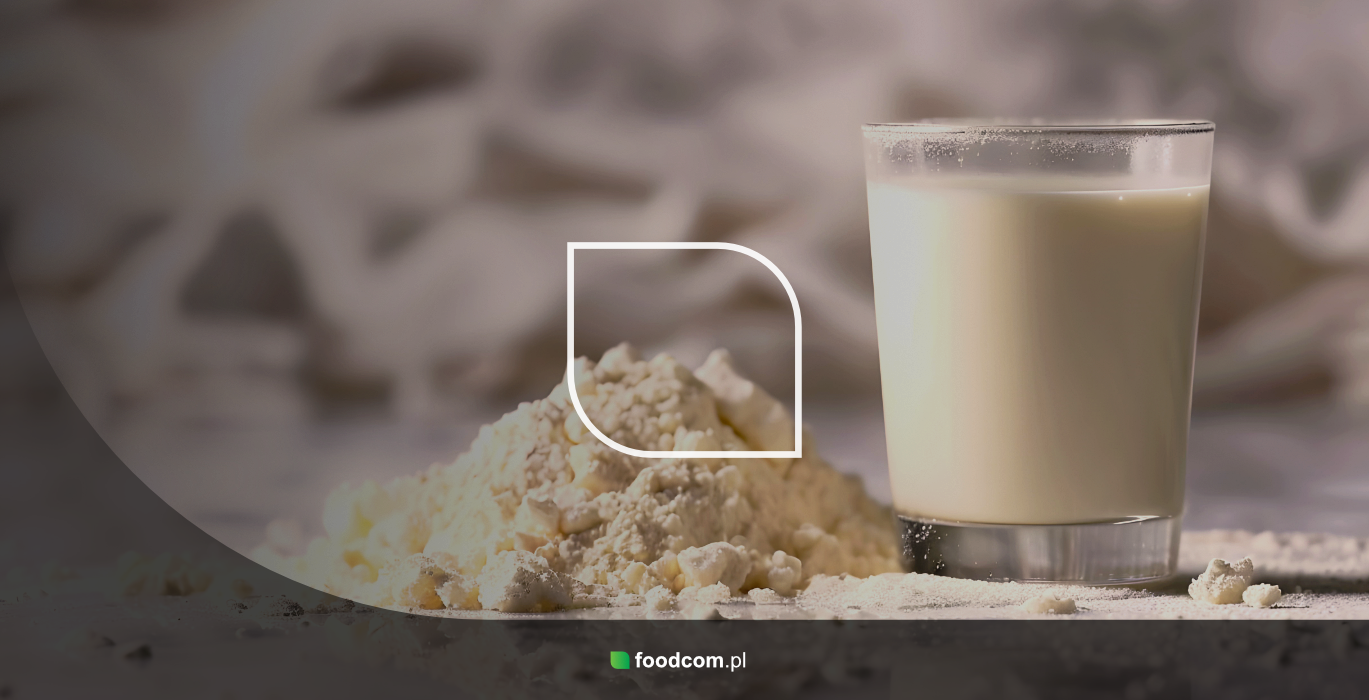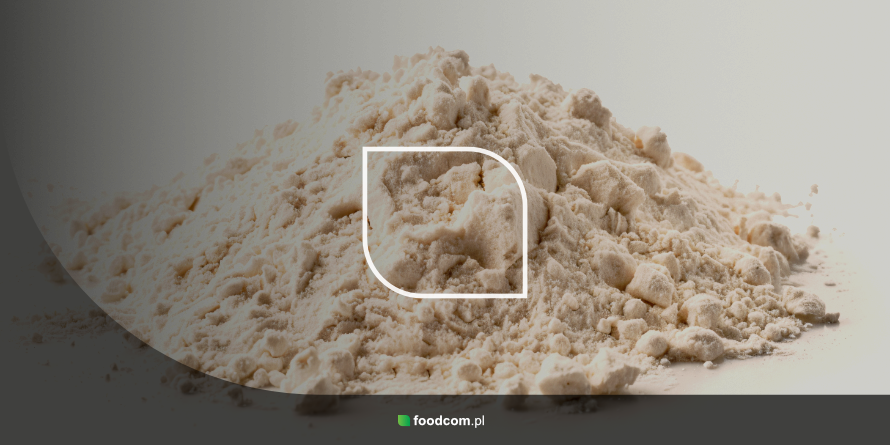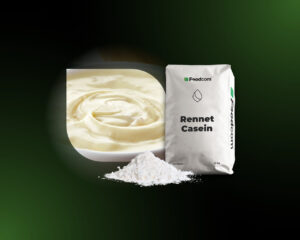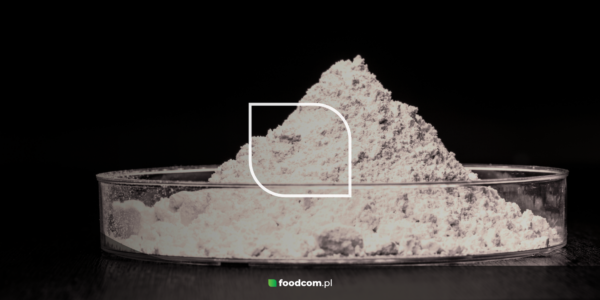● Casein is the main protein in milk and is widely used in the food, chemical, and pharmaceutical industries.
● There are different types of casein, including rennet casein and acid casein, which differ in their extraction methods and technological properties.
● Thanks to its unique functional properties, such as its ability to emulsify, gel, and bind water, casein is used in many industries.
Casein is one of the most important proteins found in milk and forms the basis of many technological processes in the food industry and beyond. Thanks to its unique physicochemical properties, it is widely used in various areas of industry – from the production of cheese and dairy beverages to its use in the chemical, pharmaceutical and cosmetic industries. In this article, we explain what casein is, the types of casein and how it is used by manufacturers in various industries.
What is casein and what are its characteristics?
Casein is a complex protein that makes up about 80% of the total protein content of cow’s milk. It is found there in the form of micelles, which are complex, spherical structures with a diameter of 25-300 nm that determine the properties of milk and dairy products. Casein is extracted from milk by precipitation using the enzyme rennet or acids.
Although casein is a natural component of milk, its importance goes far beyond the dairy industry – it is widely used in the production of food, cosmetics, paints or even bioplastics. From a business point of view, it is a high-value raw material – due to its variety of applications and stable demand in industrial sectors, it is an important part of the global dairy protein market.
Types of casein and their characteristics
There are two main types of casein, differing in their production process and physico-chemical properties: rennet casein and acid casein.
Rennet casein
Rennet casein is obtained by enzymatic coagulation of milk using rennet, an enzyme naturally found in the stomachs of calves. Rennet causes the milk to coagulate, forming a curd. The casein is then separated from the lactose, minerals and whey proteins, and is subjected to thickening and drying, eventually taking the form of a free-flowing powder.
Rennet casein has high purity, a delicate taste, good digestibility and high solubility in water. It is mainly used in the food industry, e.g. in the production of cheese, dairy drinks, desserts and as an ingredient in high-protein food products. It adds not only a milky taste to products, but also a creamy texture and nutritional value – rennet casein contains about 90-95% protein.
Acid casein
Acid casein is usually technical casein, which is made by lowering the pH of the milk to around 4.6 using acids, such as hydrochloric acid, which precipitates the protein. Whey proteins are then washed out of the curds, followed by concentration, milling and drying of the finished product.
This casein has a slightly different structure and lower solubility than rennet casein. It is characterised by greater resistance to chemical and thermal agents. It is used not only in food, but also in the production of paints, adhesives, coatings and technical materials.
In addition to the two main types of casein described, derivatives are also encountered, e.g. sodium, calcium and potassium caseinates, which are better soluble and more convenient for use in liquid products. Sodium caseinate is a food additive that stabilises processed foods, while calcium caseinate is used to increase calcium content and reduce sodium levels in products.
Properties of casein – functionality and stability
Casein is distinguished by a number of valuable technological properties that make it an extremely versatile ingredient in industry. These are primarily:
- high nutritional value (high content of essential amino acids and carbohydrates);
- gelling capacity (allows stable protein structures to be created in cheeses, yoghurts and creams);
- emulsification (stabilises fat and water emulsions, which is key in the production of sauces, ice creams and dairy creams);
- water binding (improves texture and moisture in food products);
- extensibility;
- temperature and pH resistance (retains structure even under varying environmental conditions, which facilitates its use in a variety of technological processes).
Use of casein in industry
Casein is used in a wide range of industrial sectors, making it a valuable raw material for manufacturers in various industries.
Food industry
Casein’s greatest use is precisely in the food industry, where its nutritional and texturising values are valued. It is used for:
- the production of ripened and processed cheeses,
- stabilisation of dairy drinks,
- the production of dairy desserts, yoghurt and ice cream,
- the production of sauces, pastes and dips,
- manufacture of powdered products which require rapid dissolution in water (e.g. instant soups, coffee creamers),
- improving the consistency and protein value of dietary products, e.g. bars and bread, and meat products.
Thanks to its properties, casein makes it possible to create products with a creamy texture and stable structure, which is retained even when stored for long periods of time.
Chemical and technical industry
Casein has found applications as a natural adhesive and binder, so that it is used in the production of wood-resistant adhesives for wood, furniture, leather or plastic (e.g. for labelling bottles). In the paint industry, it is used as an ingredient in coatings and varnishes to give flexibility and gloss. In the packaging and green materials sector, meanwhile, it is used to produce bioplastics as an alternative to plastics (e.g. galalite, milk cotton, nanomaterials).
Pharmaceutical and cosmetics industry
Due to its binding and film-forming properties, casein appears in some creams, masks and tablets as an auxiliary ingredient or carrier of active substances. It is also sometimes used as an additive in dietary supplements for physically active people and clinical nutrition products. Casein derivatives are also used in products for remineralising tooth enamel.
Feed industry
Due to its nutritional value, casein is also used as an ingredient in feeds and pet foods, providing a high content of essential amino acids to their diet.
Casein producers and the raw material market
The global market for casein is highly diversified and growing in value with the demand for high-quality dairy proteins. The largest producers come from New Zealand, India, France and Poland. Companies specialising in dairy raw material trading, such as Foodcom S.A., offer various forms of casein tailored to the needs of the food and technical industries, including rennet casein and acid casein.
In business terms, casein is not only an ingredient of milk, but also a raw material of strategic importance for various industries. Its technological versatility makes it indispensable in a wide range of production processes, while at the same time fitting in with the trends associated with natural and biodegradable ingredients.












